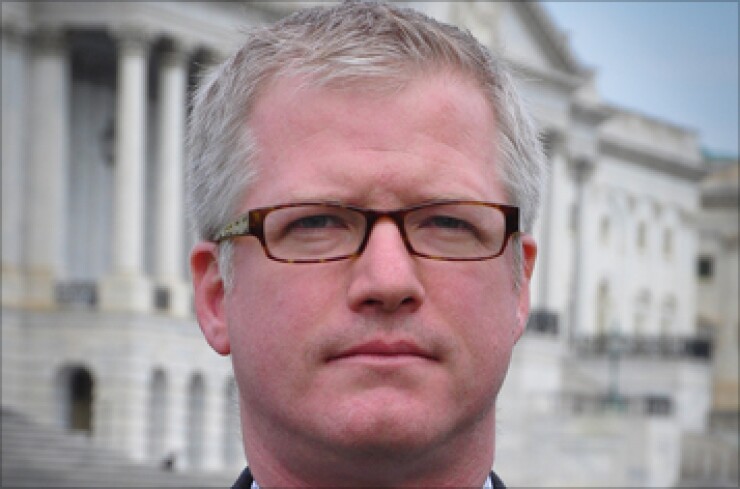
WASHINGTON - An official with a nonpartisan budget watchdog group questioned the effectiveness of tax-exempt disaster bonds and other types of disaster-related tax expenditures during a Senate hearing Tuesday afternoon.
"Too much federal assistance - whether spending or revenue loss - goes out without a real plan in place and adequate demands to make communities and individuals more resilient," Steve Ellis, vice president of Taxpayers for Common Sense, said at a disaster tax relief hearing of the Senate Finance Committee's taxation and IRS oversight subcommittee.
Ellis said that bonds and other types of tax assistance the federal government provides after disasters "can reward much reinvestment that would happen regardless and may create subsidies that are out of proportion to the losses incurred when other state, federal, and charitable programs are taken into account."
When Sen. Mike Enzi, R-Wyo. and ranking member of the subcommittee, asked Ellis if he's seen tax changes that have not provided relief to just disaster victims, Ellis specifically mentioned Gulf Opportunity Zone bonds, which issuers in Alabama, Louisiana and Mississippi could sell in the wake of the 2005 Hurricanes Katrina, Rita and Wilma.
The states received allocations of GO Zone tax-exempt private-activity bonds, GO Zone tax-credit bonds, and GO Zone additional advance refunding bonds. A 2008 report from the Government Accountability Office that Ellis mentioned found that the states generally allocated the GO Zone PABs and the additional advance refunding authority on a first-come, first-serve basis and for the most part did not focus their allocations on helping with recovery in the areas that were most damaged by the hurricanes.
In his written testimony, Ellis also criticized the New York Liberty Zone Bonds, suggesting that the tax preference may have been a waste. "On September 12, 2001 it was not clear if redevelopment would occur," Ellis said. "Within a few years, it was pretty clear that redevelopment was occurring, and high value redevelopment at that. While unnecessary, the subsidies remained."
Others who testified at the Senate hearing spoke favorably about proposed legislation called the National Disaster Tax Relief Act of 2014. The most recent versions introduced in the House and Senate would provide tax relief in major disaster areas declared in 2012, 2013 and 2014.
The witnesses did not talk about the bond provisions in the bill, but there are several of them. The bill would create PABs known as qualified disaster area recovery bonds that could be issued by disaster-stricken state and local governments to finance residential rental property, nonresidential real property, docks and wharves, mass commuting facilities or public utility property that was destroyed by a federally declared disaster.
The legislation would also relax certain requirements for mortgage-revenue bonds for people whose homes were damaged or destroyed by disasters, and would allow one additional advance refunding for governmental bonds or one advance refunding of certain types of PABs if the issuer is in a state with a disaster area.
Many of the witnesses said that predictability in disaster tax relief is important. They echoed the sentiment of subcommittee chairman Sen. Bob Casey, D-Pa., who pointed out that Congress typically takes a one-off approach to providing the relief, which leads to some types of assistance being provided after some disasters but not others. Casey called the lack of consistency "troubling."
Enzi said that Congress needs to remember that when it provides federal tax relief for one area, taxpayers across the country help to pay. He named three principles on which tax changes for disaster areas should be based. He said the benefits should: go to those who need them; likely only exist for a limited time period; and come with accountability standards.
Ellis said that in addition to predictability in the tax code, there also needs to be predictability for taxpayers to know that communities have planned for disasters and that federal investments help to better prepare disaster-stricken communities for future disasters.





